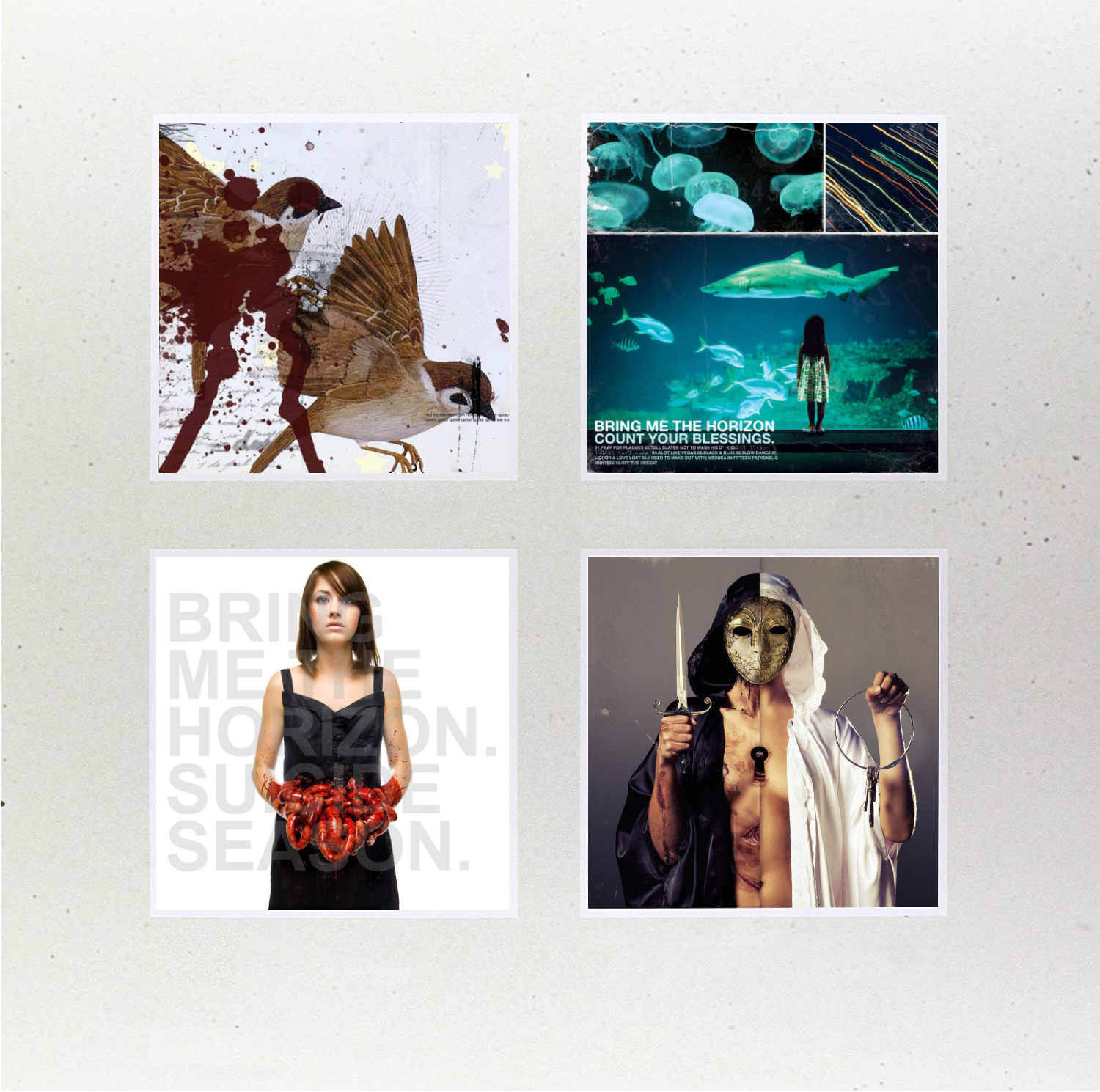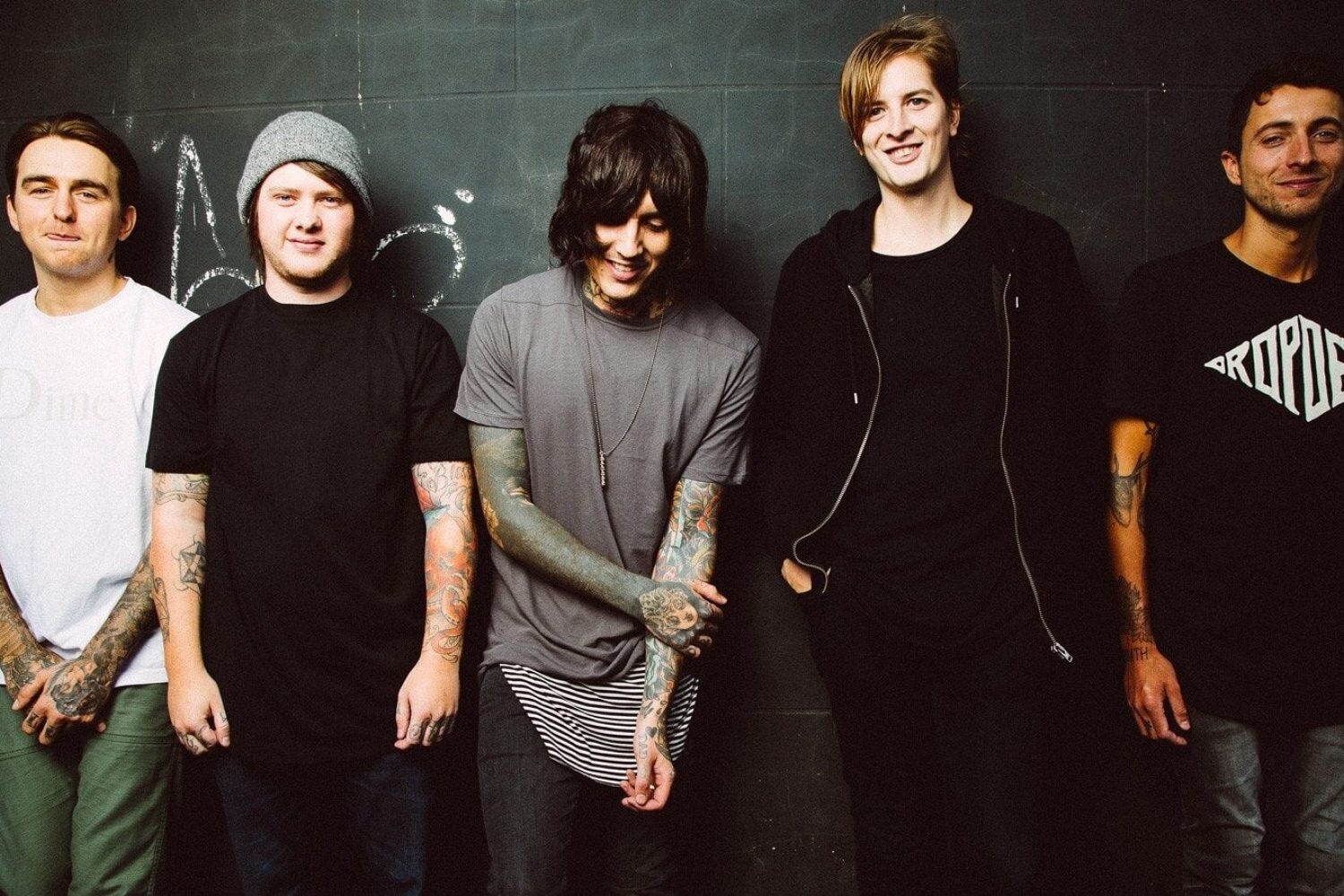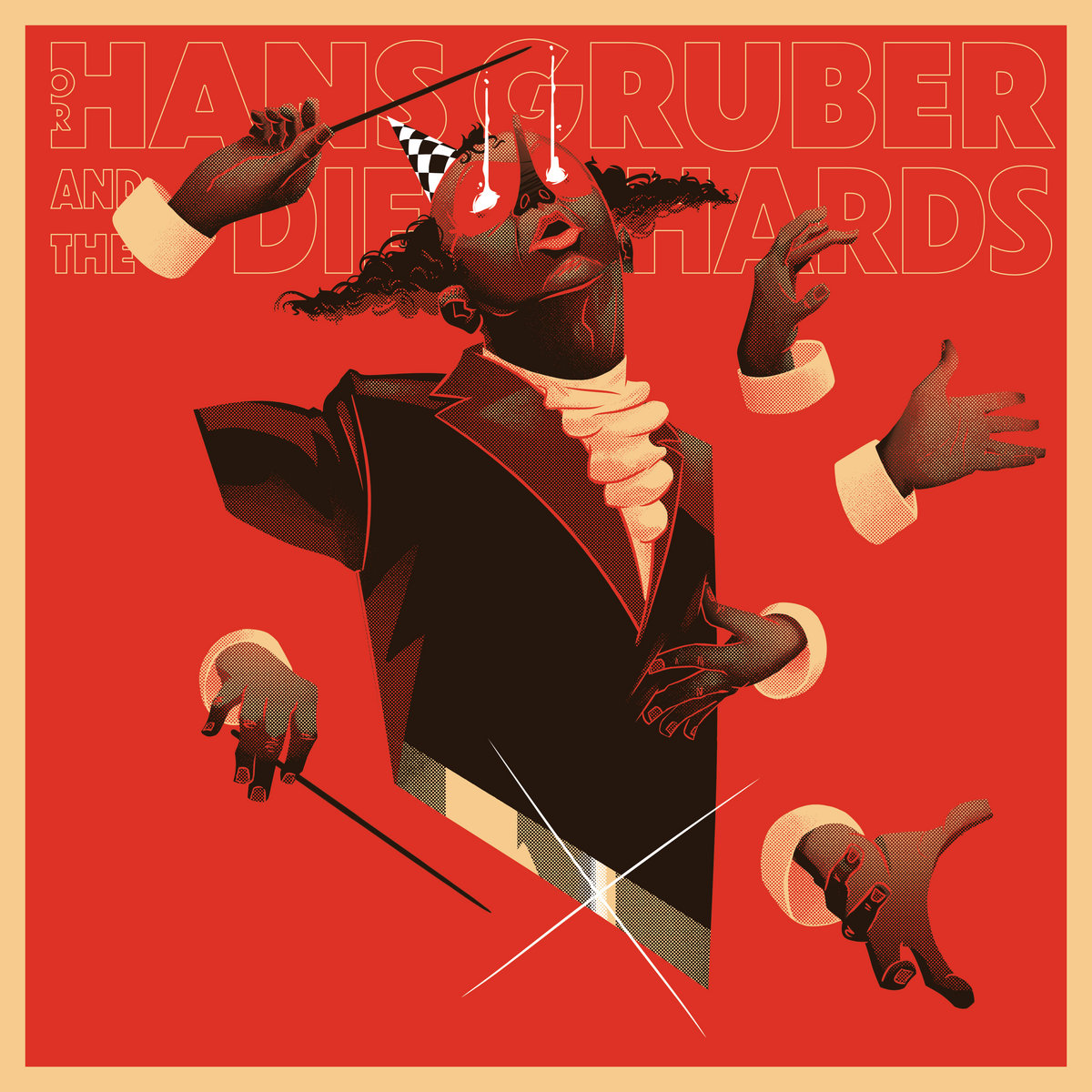Accepting Change: The Never-Ending Evolution of Bring Me The Horizon
/When I was in high school, one of my most revelatory music phases came when I discovered the wonderful world of modern metal. This was initially seeded by groups like Underoath, Chiodos, and The Devil Wears Prada that I stumbled upon in middle school, but came into full bloom throughout high school when groups like Dance Gavin Dance, Of Mice & Men, and We Came As Romans began to gain traction.
These bands are often categorized under different labels depending on who you ask; post-hardcore, screamo, Risecore, you name it. For a genre that’s supposedly about upending societal norms, metalheads weirdly tend to be some of the worst, most pedantic genre-nazis out of any music scene. For their sake, I’ll just refer to this overarching scene as metalcore from here on out, but I recognize that I’m painting with a broad brush. Regardless of what you call this style of music, this crop of mid-to-late-aughts metal bands became the foundation for my entire being in high school. This genre influenced my musical taste, my style of clothing, and even my personality for the better part of my teenage years. Do I regret it? A little. Would I go back and change it? Never.
Essentially an extension of the 2000’s Warped Tour scene, these groups took cues from pop-punk, metal, hardcore, and electronica and blended them into a highly-marketable fusion of all those genres. Some groups like Attack Attack! became memes. Some groups like Of Machines burned bright and fizzled out after one record. Some groups like August Burns Red made it big and have stuck to their artistic guns ever since. And some groups like Bring Me The Horizon struck gold early on then kept growing and pivoting into a band that’s somehow still successful and filling stadiums in 2020.
I’ll be the first to admit that, even over the course of the last decade, most of this music aged has poorly. However, for people like myself who had these bands soundtrack their formative years, the nostalgia factor is undeniable and irreplaceable. Some people have tried their damndest to argue the artistic merit of bands like Attack Attack!, but unless you were listening as it was happening, I don’t see many bands from this scene being accessible to an outsider at all. Like, at all. In 2020, most of these songs sound dated, sexist, or just plain cringy, but when they soundtracked your first romance, your first “real concert” with friends, and hundreds of hours of Call of Duty lobbies, then you’re willing to overlook a lot.
This is all to say that this era of 2005 to 2012 metalcore is near and dear to my heart. I’ve written about it in bite-sized pieces before, but never focused on any one band in particular. If you’d allow, I’d like to take you on a journey back in time to my specific discovery of one act called Bring Me The Horizon.
The year was 2006. It was my first year of high school, and I was still trying to figure out what the hell that meant. My friends and I were all working on 5-starring every song in Guitar Hero II, and (aside from homework), we didn’t have a care in the world. Drugs and alcohol were never a desire for me growing up, so the only two things filling my brain were video games and music. At the time I was deep into classic rock and Grunge. Kurt Cobain was my left-handed hero, and there was nothing more that I wanted than to be a teen in the ’90s.
I had a few old-school “metal” bands on my iPod Nano, mostly things like AC/DC, Guns N’ Roses, and Metallica, as much as you can call those metal. These groups stood in direct contrast to more contemporary metal acts on my iPod like the aforementioned Underoath and The Devil Wears Prada, both of whom were Christian bands with harsher vocals and more modern sensibilities. While that early wave of Christian metalcore was a game-changer at the time (I still remember the first time I heard “Baby, You Wouldn't Last A Minute On The Creek”), they weren’t necessarily records I was listening to every day.
Sometime in 2007 a sea change happened, and there became a clear divide in my class of peers. There were jocks, popular kids, burnouts, theater geeks, and all the usual groups you see in every 2010’s-era coming-of-age dramedy, but an emerging addition to the schoolyard class system was the metalhead. This wasn’t the stereotypical 80s metal fan headbanging to Twisted Sister and Quiet Riot, nor was it the 90s relic metalhead listening to Pantera and Slayer, this was a new breed of fan that felt distinctly late-2000’s.
Colloquially referred to as “scene kids,” this newest subgenre of metal fan bore little resemblance to their predecessors. They squeezed into black skinny jeans, straightened their hair, and wore shirts adorned with brightly-colored neon skulls. It was basically every “rawr XD” meme that we can now appreciate ironically with enough hindsight but done in earnest. They had snakebite piercings, carabiner keyholders, black MySpace pages, and most importantly; they listened to music with breakdowns. As uncool as it sounds now, I desperately wanted to be one of them.
Not only was this group accepting enough to let me into the fold, but it also turns out that I genuinely enjoyed their music. Metalcore aside, this included questionable shit like NeverShoutNever, Owl City, and Metro Station. I only really dipped my toe into most of those bands because the lion’s share what attracted me to the scene were the heavy bands. While the list of late-00’s metalcore acts is practically endless, the one band I still have a visceral memory of listening to for the first time was Bring Me The Horizon.
We were in the cafeteria, and one of my friends handed me his iPod. He told me “listen to this,” and that was all the preface I got before he played “(I Used To Make Out With) Medusa.” Simply put, it was unlike anything I’d ever heard before. It was heavy as shit. Almost too heavy for me at the time, but I wanted to like it. I downloaded the record and soon found myself listening to it frequently enough to build up a “tolerance” to it.
Technically classified as deathcore, Bring Me The Horizon’s debut album Count Your Blessings was a ten-track, 36-minute-long dip into the most hardcore of waters I’d ever swam in. It was so heavy in fact, I could only handle it in short bursts. Songs like “Slow Dance” and “Fifteen Fathoms and Counting” gave me an instrumental breather between the punishing brutality of “Braile (For Stevie Wonder's Eyes Only),” the piercing screams of “Pray for Plagues,” and the frantic guitarwork of “Off the Heezay.” Count Yout Blessings was shocking, heavy, and changed my taste forever from that point onward.
This album led me to dozens of other groups in the scene, many of which I mentioned above. As I began to immerse myself into this world, its bands, and its unique language of breakdowns and guttural vocals, I gradually grew to love Count Your Blessings. Once I knew the words, where the riffs hit, and what I could “sing along” to, the whole thing became child’s play. What was once the heaviest thing I’d ever heard soon became one deathcore album of many packed onto my 32 gig iPod Nano.
Then 2008 happened.
One year after I discovered Bring Me The Horizon, the group released their much-anticipated sophomore record Suicide Season. I excitedly downloaded the album, loaded it up onto my iPod, sat down to listen to it, and the damndest thing happened… I thought it was too soft. Granted, the band shifted from deathcore to a slightly-more-accessible metalcore formula, but still, it shocked me that this band I’d spend so long “adjusting to” was now putting out something that I deemed too far below my current tastes.
Then two years passed, I got deeper into metalcore, and in 2010 the group put out the mouthful of an album There Is a Hell Believe Me I've Seen It. There Is a Heaven Let's Keep It a Secret. Once again, I gave the album a listen and deemed it “too soft” for my taste. It’s not like I was only listening to metal, at this time I was getting into Sigur Ros, Portugal. The Man, Bon Iver, and tons of other groups, the problem was Bring Me The Horizon had set the bar so high with their first album that my expectations were skewed from that point onward.
By the time I hit college, my tastes had begun to expand further into more diverse and eccentric subgenres of music. Everything from Stoner Rock to Electronica was starting to creep its way onto my then-massive 120-gig iPod Classic. Metalcore was still represented, but it began to fade into the background of my day-to-day listening, and by extension, my personality. Perhaps leaving the environment in which I “fit in” to the scene changed my taste in music. Once I no longer had piers from a specific group to connect with, learn from, or impress, then I began to drift into something that felt more honest and true to myself.
I’d still revisit metalcore every once in a while throughout college. Sometimes it was a concert for nostalgia’s sake, sometimes I just needed something angry to vent through by-proxy on a stressful train ride home. Sometime in 2015 I revisited Suicide Season specifically, and I couldn’t believe it… the record actually sounded pretty good. I went back to Count Your Blessings to recalibrate my possibly-then-out-of-date tastes, and it sounded exactly as I remembered. What happened? Had I softened in my age? Was I not as metal as I once tried to be in high school? Had I lost touch with the scene?
I gave Suicide Season a few more listens and moved on. I revisited the album again the next year in 2016, and then again the year after that. By 2017 I had graduated from college and found myself in a completely new phase of my life. High school felt like a distant memory, now two periods of my life behind me. Sometime that year, I found myself listening to Suicide Season and came to the shocking realization that it might be my favorite metalcore album of all time. What?
Turns out that Suicide Season wasn’t bad, it’s just that 2008 Taylor was wrong. My perspective was skewed. My expectations at the time were misplaced, and nine years later those expectations were completely gone. It was as if I was listening to the album for the first time ever. That rediscovery of shifting tastes prompted me to give another shot to There Is a Hell, and wouldn’t you know it, but that album started to grow on me too.
So there I sat, with egg on my face enjoying Bring Me The Horizon’s first three albums and retroactively chastising younger me for being such a dopey elitist about these two great albums merely because they didn’t have the same low growls and chuggy riffs as the band’s first release.
By 2018, I still hadn’t given either Sempiternal or That's the Spirit a proper shake, but that summer Bring Me The Horizon started promo for their upcoming sixth studio album Amo. The first single "Mantra" wasn’t exactly my cup of tea, but I could connect the dots and see that the band had become much more radio-friendly in the two albums that I’d skipped over. Nevertheless, I made a conscious decision that I was going to go into this new album with a completely open mind, non-existent expectations, and zero preconceived notions.
When Amo released in early 2019 the metalheads did the same thing they always do and complained that it was too poppy. I understood their criticism and saw a younger version of myself in those comments, but I gave the album a shot and, guess what, it’s great. I actually did see some positive early reception on reddit of all places, implying that maybe some of these fans were in the exact same boat as I was, aging gracefully (or not-so-gracefully) into a more refined and open-minded metal palate.
Sure, the band that created Amo bears little resemblance to the one I first fell in love with back in high school, but that’s what happens over the course of a decade. People change. Bands change. Sounds change. Styles change. Tastes change. The group that wrote the love song "Mother Tongue" is surprisingly not the same group of 20-somethings that wrote “Tell Slater Not To Wash His Dick.”
As I mentioned above, there are plenty of groups from this era of my childhood that have “stuck to their guns” artistically. August Burns Red is still making the same album over and over again for better or worse. Dance Gavin Dance have continued to kill it despite spending a better part of their early years dealing with near-constant lineup changes. Hell, even Underoath are still putting out quality records and sound tighter live than they’ve ever been. It’s okay that Bring Me The Horizon have aged and changed their sound. The band isn’t bound to deathcore, nor should they be. In fact, at this point, Bring Me The Horizon have probably spent more time getting radio play with kind-of-heavy alternative rock than they have making the deathcore albums I associate them with.
Sure their new sound is more accessible than their early work, but Amo is arguably a better album than the ones I grew up listening. In looking at Bring Me The Horizon, I’m reminded of a younger version of myself that I want to slap for being such a stuck-up prude about something as goofy as subgenres and sonic changes. Likewise, I’m reminded of a younger version of myself that would be shocked at the poppy music I not only tolerate but willingly listen to on a daily basis now.
I also recognize the fact that I’m not a creature of change. I like to eat the same things, play the same games, and hang out with the same people. I’m not afraid of change, but it sure makes me uncomfortable. I can recognize that this tendency bleeds over into music, even if I like to think I’m more conscious of it now than I was in high school. I’m still as susceptible to snap judgments and bad takes as anyone, but my own revisionist history on Bring Me The Horizon highlights not only how a band can change to stay relevant and successful, but how we as listeners should try our hardest to come into things open-minded.
I’ve grown to accept these albums for what they are, and high school Taylor would probably hate me for that. Not only that, I’ve gone on to love these albums that I once wrote off for ill-founded and superficial reasons.
Bring Me The Horizon is a great band. Count Your Blessings is heavy, Suicide Season is near-perfect, and Amo is catchy and eclectic. They’re all great for different reasons, and it only took me a decade to realize it.








